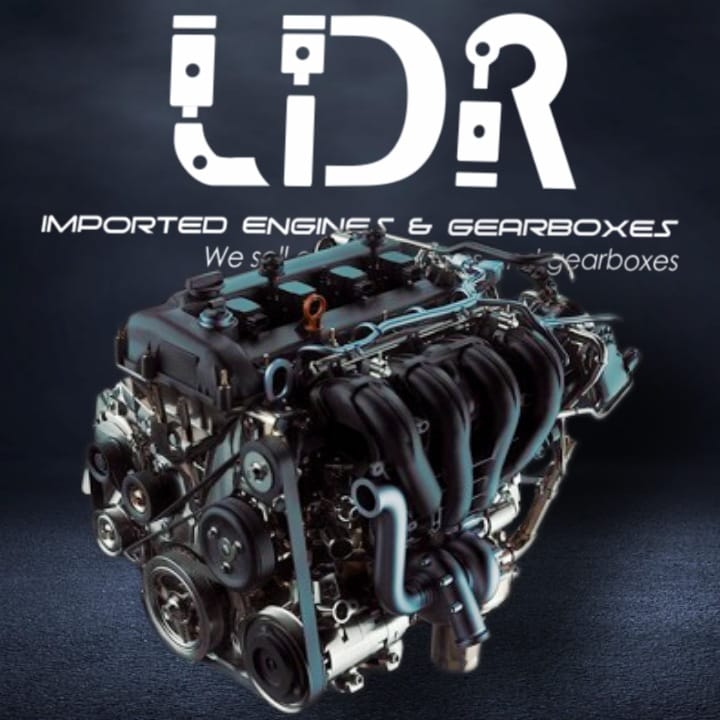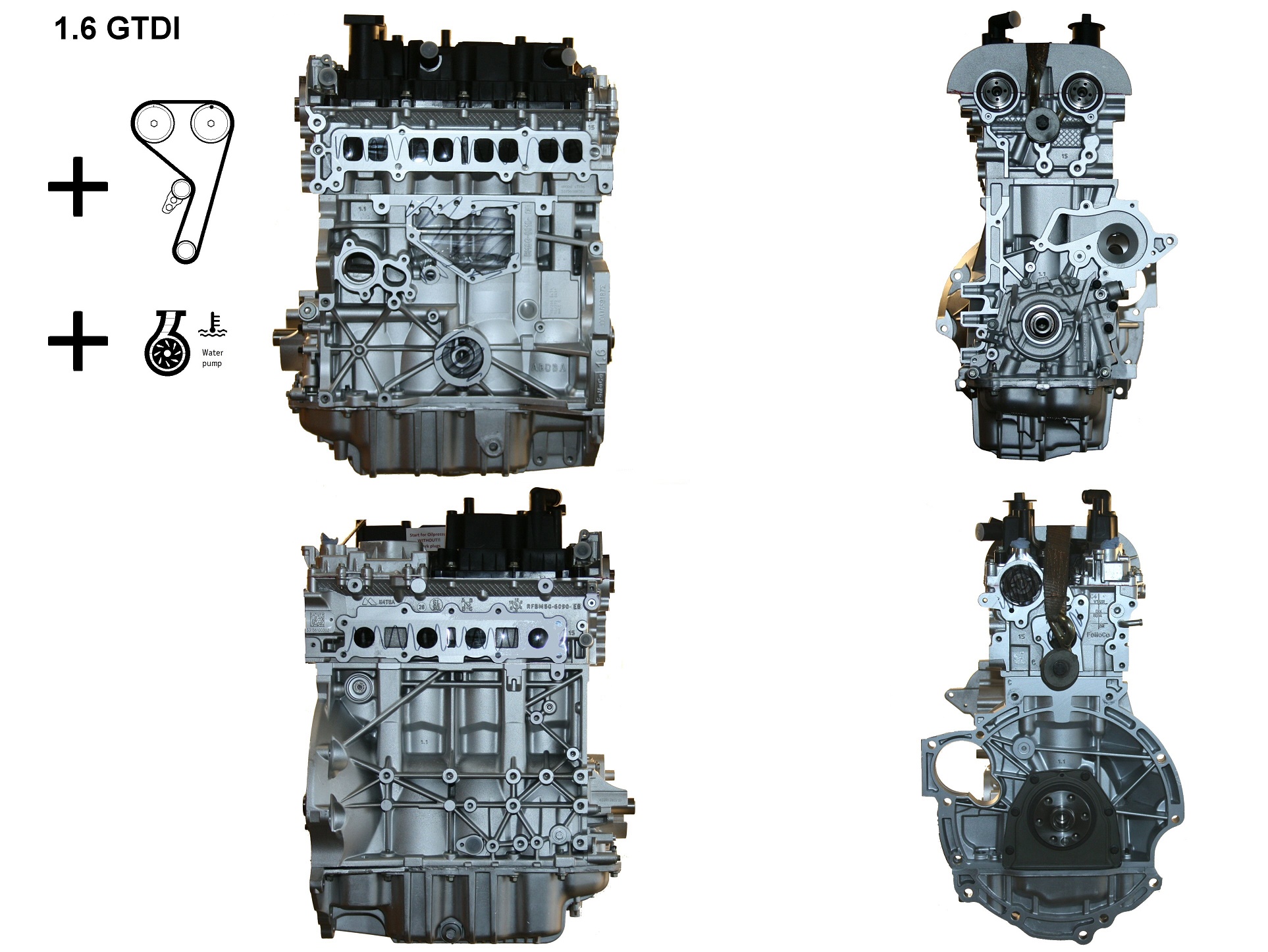Top Ford Fiesta Engine Repairs to Avoid Costly Damage
Top Ford Fiesta Engine Repairs to Avoid Costly Damage
Blog Article
The Future of Engines: Advancements Driving Lasting Power Solutions
As the vehicle sector navigates the imperative transition towards sustainability, the future of engines is progressively defined by groundbreaking technologies. Electric engine advancements, alongside promising advancements in hydrogen fuel cells and biofuels, are reshaping the landscape of power solutions.
Electric Engine Dope
The advancement of electrical engine advancements symbolizes an essential shift in the auto and aerospace sectors, driven by the immediate demand for sustainable choices to fossil gas. This change is characterized by considerable innovations in battery modern technology, power electronic devices, and electrical motor style, which collectively enhance the efficiency and performance of electrical engines.
Recent advancements have resulted in the creation of lighter, more energy-dense batteries, such as lithium-silicon and solid-state batteries, which assure longer ranges and shorter billing times. Furthermore, enhancements in electrical motor performance, such as using long-term magnets and advanced cooling down systems, make it possible for electric engines to operate effectively under differing conditions. These improvements not just boost vehicle efficiency however also add to a decrease in overall power usage.
In addition, the assimilation of advanced software application algorithms has actually maximized power administration in electrical automobiles, permitting regenerative braking and anticipating billing techniques. As manufacturers significantly welcome electric propulsion, the auto and aerospace sectors are experiencing a standard shift in the direction of greener technologies. This advancement not just fulfills regulative needs but also aligns with consumer preferences for eco-friendly transport options, strengthening electrical engines as a cornerstone of future sustainable flexibility.
Innovations in Biofuels
As the auto and aerospace sectors significantly focus on lasting power sources, developments in biofuels emerge as a complementary service to electric engines. Biofuels, originated from natural products such as crops, waste, and algae, present an ingenious opportunity for reducing greenhouse gas emissions and reliance on fossil gas.
Recent research has concentrated on enhancing the efficiency and sustainability of biofuel production. Second-generation biofuels make use of non-food feedstocks, minimizing competition with food supply and lowering ecological impact. Advancements in synthetic biology have enabled the design of microbes to produce biofuels a lot more efficiently, leading to higher yields and lower production costs.
Furthermore, the development of drop-in biofuels permits seamless assimilation right into existing infrastructure, making it possible for a smoother transition for markets typically dependent on fossil gas. ford fiesta engine. These gas can be made use of in present engines without modifications, promoting their fostering across different fields
Investments in biofuel technology, along with supportive policies, are important to drive development and scalability. As the worldwide neighborhood seeks to fight climate adjustment, biofuels offer a practical, prompt service that aligns with the overarching goal of sustainability in transport and aeronautics.
Hydrogen Gas Cell Innovation
An expanding variety of scientists and companies are discovering hydrogen gas cell modern technology as a viable alternative to standard power sources in transportation and energy systems. This innovation transforms chemical power from hydrogen right into electrical power via an electrochemical response, with water as the only by-product, making it an environmentally friendly alternative.
The core of hydrogen fuel cells is the fuel cell stack, where hydrogen particles are split right into electrons and protons. The flow of electrons creates electrical energy, while protons move via a membrane to integrate with oxygen from the air, creating water. This procedure causes high efficiency and reduced emissions, positioning hydrogen fuel cells as a crucial gamer in the change to sustainable energy.
Substantial developments have actually been made in enhancing the longevity and performance of gas cells, together with lowering expenses with ingenious production strategies. The development of hydrogen manufacturing techniques, such as electrolysis powered by eco-friendly energy sources, boosts the sustainability of the total system. As framework for hydrogen refueling expands and manufacturing methods end up being much more efficient, hydrogen fuel cell technology holds terrific guarantee for decarbonizing different markets, consisting of heavy-duty transportation and fixed power generation.
Hybrid Solutions and Their Impact
Crossbreed systems stand for a substantial official site advancement in lasting engine innovation, combining traditional inner combustion engines with electric propulsion to enhance energy efficiency and decrease discharges (ford fiesta engine). This dual method permits cars to utilize both power resources, enabling higher adaptability in energy usage and decreasing reliance on nonrenewable fuel sources

Along with ecological benefits, crossbreed systems use consumers a feasible shift towards completely electric vehicles. They reduce variety anxiousness by combining the benefit of fuel with the advantages of electric propulsion, making them an attractive a knockout post alternative for a wider target market. As suppliers spend in hybrid modern technology, the advancement of advanced battery systems and light-weight materials remains to improve efficiency. Overall, hybrid systems stand for a pivotal action in the direction of achieving lasting transport and dealing with the urgent need for eco-friendly power solutions.
The Duty of AI in Engine Layout
Leveraging advanced formulas and device knowing strategies, the automobile sector is significantly incorporating fabricated intelligence (AI) into engine design processes. AI boosts the performance and efficiency of style by assessing substantial datasets to identify optimal setups and efficiency parameters. This ability enables designers to mimic numerous operating conditions and predict engine habits under several scenarios, dramatically minimizing the moment and price related to standard prototyping approaches.
Moreover, AI facilitates the advancement of innovative products and burning procedures tailored for sustainability. By maximizing gas efficiency and reducing discharges, AI-driven designs straighten with worldwide campaigns intended at decreasing the carbon footprint of automotive engines. Artificial intelligence formulas can additionally anticipate maintenance demands, causing enhanced reliability and long life of engine parts.
Moreover, AI is crucial in the combination of electrification modern technologies, such as crossbreed systems, where it can maximize battery monitoring and power recuperation processes. As the market relocates towards more lasting power options, the duty of AI in engine layout becomes significantly crucial, driving advancement and improving the efficiency of future engines. Inevitably, the cooperation between AI and engine style advertises a new period of smarter, cleaner, and a lot more reliable automobile innovations.

Final Thought
In final thought, the future of engines is being shaped by a convergence of ingenious modern technologies that prioritize sustainability. Electric engine advancements, biofuel growths, hydrogen gas cells, and hybrid systems collectively contribute to a substantial reduction in discharges and environmental effect. Additionally, the assimilation of fabricated intelligence in engine see it here style boosts performance and efficiency. These transformative options emphasize a dedication to producing a cleaner, much more sustainable vehicle landscape, ultimately benefiting both culture and the environment.
Electric engine improvements, along with promising developments in hydrogen fuel cells and biofuels, are improving the landscape of power remedies. Additionally, renovations in electric motor performance, such as the use of long-term magnets and advanced cooling systems, allow electrical engines to run properly under differing problems. By enhancing gas performance and reducing exhausts, AI-driven layouts straighten with global campaigns aimed at reducing the carbon footprint of vehicle engines. As the sector moves towards even more sustainable power options, the role of AI in engine style becomes significantly vital, driving technology and enhancing the efficiency of future engines. Electric engine improvements, biofuel advancements, hydrogen gas cells, and crossbreed systems jointly add to a substantial decrease in exhausts and ecological influence.
Report this page